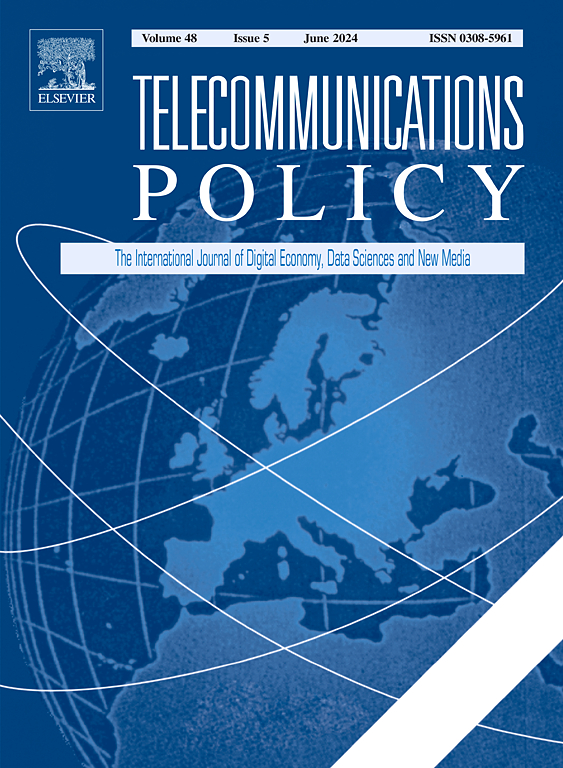Infrastructure sharing reduces the energy, emissions and costs of universal mobile 4G and 5G broadband
IF 6.4
2区 管理学
Q1 COMMUNICATION
引用次数: 0
Abstract
While there is a strong imperative to deploy necessary broadband infrastructure to provide Internet services in rural and remote areas, this must be undertaken in a sustainable and cost-efficient way. Indeed, it is essential to carefully minimize energy consumption, associated emissions, and investment costs in universal broadband strategies. Infrastructure sharing can help achieve this. Thus, a theoretical method is developed to quantify the energy, emissions and cost impacts of universal mobile broadband, consequently applied to developing Asia. The results find that to deliver 4G of 20 GB/Month per user (via a wireless backhaul) the operational CO2eq. emissions reach 88.9 Mt annually in total, or between 16 and 37 kg per smartphone for different country income groups. Importantly, infrastructure sharing strategies can lead to energy and emissions reductions of 9–19 %, as well as reduce necessary financial investments by 15–49 %. Policy choices to encourage infrastructure sharing can consequently enable substantial reductions in energy consumption, emissions and costs.
基础设施共享减少了通用移动4G和5G宽带的能源、排放和成本
虽然迫切需要部署必要的宽带基础设施,以便在农村和偏远地区提供互联网服务,但这必须以可持续和具有成本效益的方式进行。事实上,在普遍宽带战略中,必须谨慎地尽量减少能源消耗、相关排放和投资成本。基础设施共享有助于实现这一目标。因此,开发了一种理论方法来量化通用移动宽带的能源、排放和成本影响,从而应用于发展中亚洲。结果发现,为每个用户提供每月20 GB的4G(通过无线回程),操作二氧化碳当量。每年的总排放量达到8890万公斤,即不同国家收入群体的每部智能手机的排放量在16至37公斤之间。重要的是,基础设施共享战略可以减少9 - 19%的能源和排放,并将必要的金融投资减少15 - 49%。因此,鼓励基础设施共享的政策选择可以大幅减少能源消耗、排放和成本。
本文章由计算机程序翻译,如有差异,请以英文原文为准。
求助全文
约1分钟内获得全文
求助全文
来源期刊

Telecommunications Policy
工程技术-电信学
CiteScore
10.80
自引率
12.50%
发文量
122
审稿时长
38 days
期刊介绍:
Telecommunications Policy is concerned with the impact of digitalization in the economy and society. The journal is multidisciplinary, encompassing conceptual, theoretical and empirical studies, quantitative as well as qualitative. The scope includes policy, regulation, and governance; big data, artificial intelligence and data science; new and traditional sectors encompassing new media and the platform economy; management, entrepreneurship, innovation and use. Contributions may explore these topics at national, regional and international levels, including issues confronting both developed and developing countries. The papers accepted by the journal meet high standards of analytical rigor and policy relevance.
 求助内容:
求助内容: 应助结果提醒方式:
应助结果提醒方式:


